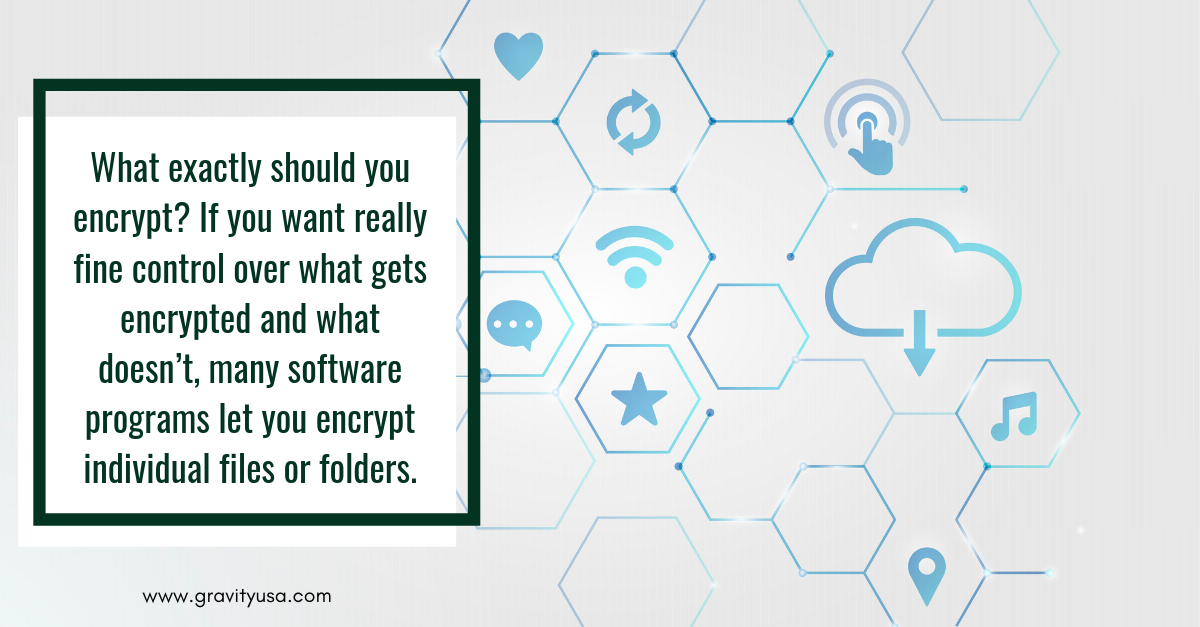There are all kinds of reasons for you to protect your company’s digital data from prying eyes. In addition to the threat of losing precious trade secrets or running afoul of your industry’s client privacy compliance requirements, you run the risk of handing over bank account data, credit card numbers, Social Security numbers and other critical pieces of information. Fortunately, there’s a powerful technique that you can employ to lock that data up: encryption.
Encryption is simply the substitution of some characters for other characters according to a cypher or key. In the digital world, complex algorithms generate and implement these keys to protect data. The strength and complexity of encryption keys have advanced steadily over the years to keep ahead of hackers. While 128-bit AES encryption can still defeat the cracking efforts of today’s supercomputers, the true state of the art is 256-bit AES encryption. This strength level is sufficient to satisfy government security standards (and it’s the level we use in our own Gravity Backup service).

What exactly should you encrypt? If you want really fine control over what gets encrypted and what doesn’t, many software programs let you encrypt individual files or folders. If you want more global protection, you can opt to encrypt entire disk volumes or devices. Just remember that if you lose or forget the password, you could be locked out of that device or volume for life, just like the bad guys. That’s why we recommend keeping a written copy of the password securely stashed away at all times.
If you really want to do your business’s encryption right, talk to the Austin IT technical support team at Gravity Systems. We can make sure that you’ve got the right encryption systems in place and advise you on best practices for keeping all your data as private as possible!




